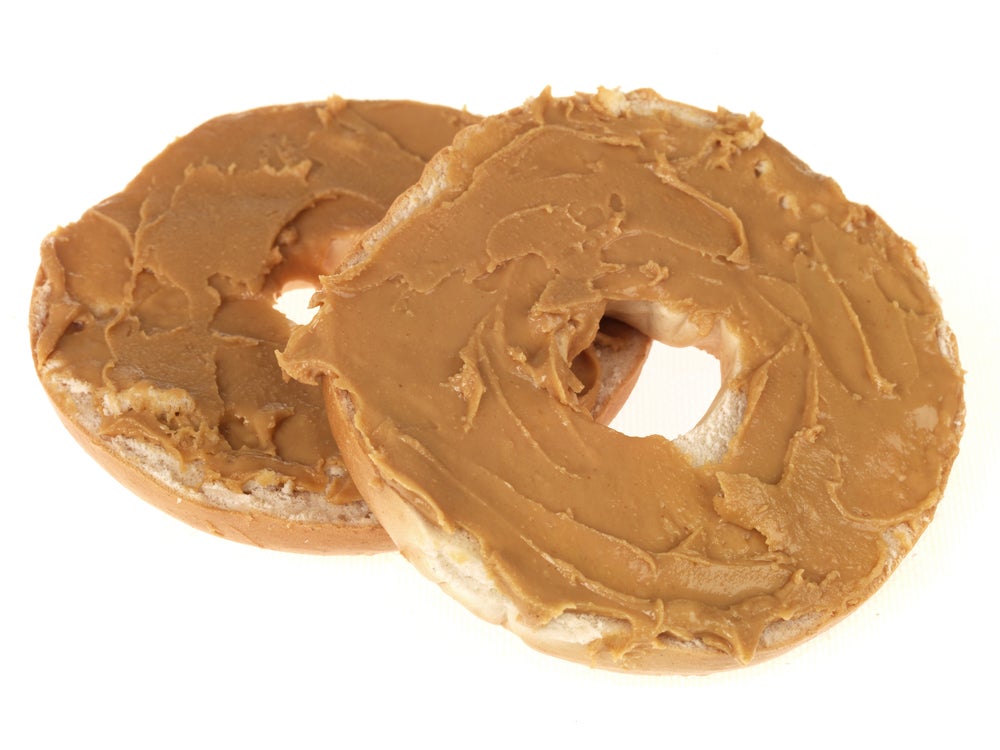The 3 Goals of Your Pre-Race Meal

Photo: Shutterstock.com
Pre-activity meals should consist primarily of carbohydrates and fluids.
The food you eat from five minutes up to four hours before activity helps refuel your muscles and brain, which are depleted overnight—on average, athletes can lose up to 25 percent of their glycogen stores by morning. Whether it is the “A” race or a big training day, your sports nutrition practice and routines are critical for improving your performance. Pre-event meals should emulate those on training days.
Pre-activity meals should consist primarily of carbohydrates and fluids. Aim for 100–150 grams of easy-to-digest carbohydrates in the 2–3 hours leading up to an event, allowing enough time for digestion and absorption. A sample meal would be a bagel (salted if a hot day) with nut butter and honey plus 20–24 ounces of sports drink. My go-to is a smoothie made with protein powder (10–20 grams maximum, only used for blood sugar regulation) and fruit, with an English muffin with almond butter and honey. Be mindful that as the amount of food and fat (nut butters or nuts) consumed increases, so does the time needed for digestion.
RELATED: Your Nutritional Game For A Successful Away Race
A nervous stomach or an early start can make it uncomfortable to eat much. One alternative is a liquid meal (smoothie), or lighter snacks like toast, fruit or yogurt. Typically, you cannot replace the fluids lost as sweat during exercise. If you’re planning for a hot day, try pre-loading your body with sodium and hydrating well. Drinks with electrolytes and carbohydrates are very beneficial before, during and after the race.
“Normal” glycogen levels last for 90 minutes of continuous activity. If you don’t refuel glycogen levels, you will likely reach exhaustion and not be able to maintain normal exercise intensity after 90 minutes. If your pre-event is less than perfect, make up for it by refueling during the event.
In addition, consider individual preferences. If you believe that a specific food will improve performance, then the psychological effect of consuming that food may result in enhanced performance. We all may have some “lucky” food or regimen. A single pre-event meal will not compensate for a poor training diet. Practice “race” day on your training days … that is the best sports nutrition possible!
RELATED: What Do I Eat The Night Before A Race?
There are three main goals when eating prior to exercise:
1. Prevent weakness and fatigue as a result of low blood sugar levels or inadequate muscle glycogen stores.
2. Ward off feelings of hunger yet minimize gastrointestinal distress.
3. Guarantee optimal hydration, especially if you’re battling hot temps!
Jill Whisler, MS, RDN is a wellness dietitian and a three-time ITU World Championship Short Course competitor.